December 4, 2024 •
California Gift and Contributions Limits to Increase for 2025-2026
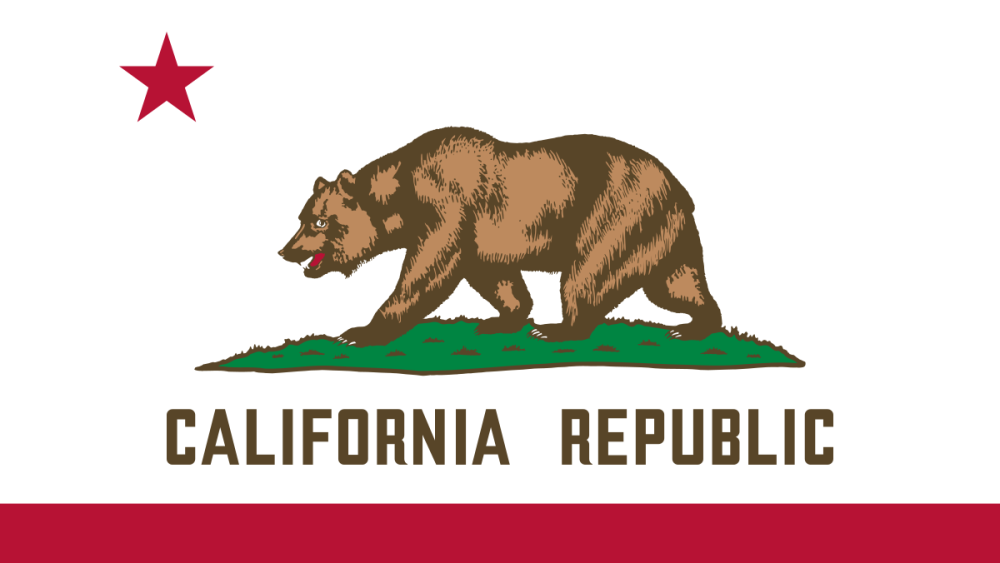
Flag of California
The California Fair Political Practices Commission (FPPC) recently drafted amended regulations to increase gift and contribution limits for the years 2025-2026. The gift limit will increase from $590 to $630 per calendar year. The contribution limit from individuals, corporations, and […]
The California Fair Political Practices Commission (FPPC) recently drafted amended regulations to increase gift and contribution limits for the years 2025-2026.
The gift limit will increase from $590 to $630 per calendar year.
The contribution limit from individuals, corporations, and PACs made to candidates for the Legislature will increase from $5,500 to $5,900 per election.
The limit to candidates for statewide office, other than governor, will increase from $9,100 to $9,800 per election and the limits for the governor’s office will increase from $36,400 to $39,200.
The amended regulations will be considered at an FPPC meeting on or after January 14, 2025.
November 15, 2024 •
Broward County Commission Approves Food and Drink Gift Limit Increase
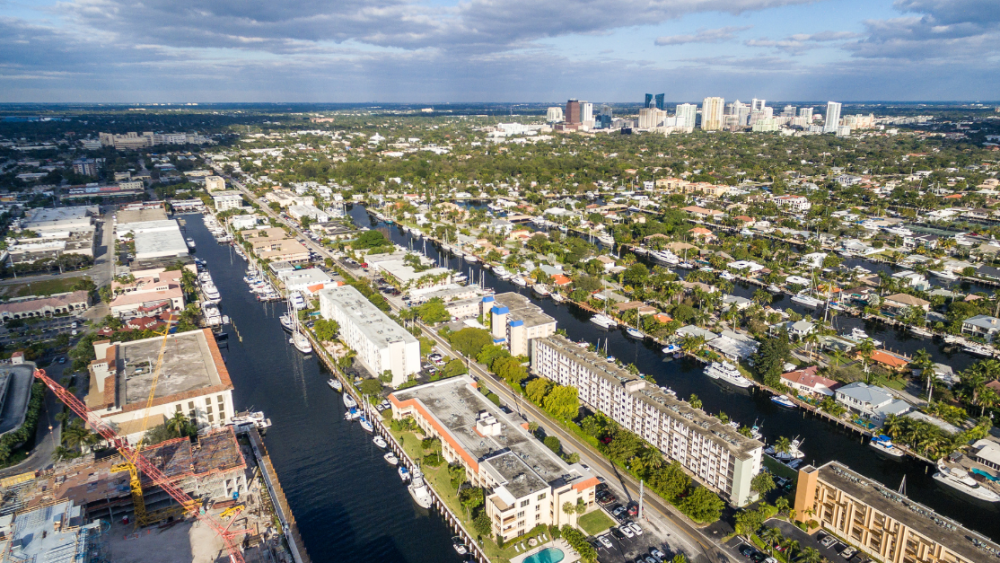
Image by Gagliardi Photography
The County Commission has approved an ordinance to raise the monetary value limit of a gift of food and drink for elected officials from $5 to $25. Commissioner Mark Bogen stated this ordinance will allow elected officials, candidates, and government […]
The County Commission has approved an ordinance to raise the monetary value limit of a gift of food and drink for elected officials from $5 to $25.
Commissioner Mark Bogen stated this ordinance will allow elected officials, candidates, and government staff to interface better with the public as the current rules prevent officials from attending functions they should be attending.
Reasoning in the ordinance states the stringent gift limitations in the County Code of Ethics unintentionally discourage personal interaction and communication between elected officials and the communities they serve.
The gift limitation was raised on November 12 after a unanimous vote for its approval.
October 21, 2024 •
Broward County Commission Considers Food and Drink Gift Limit Increase

Image by Gagliardi Photography
The County Commission has proposed an ordinance to raise the monetary value limit of a gift of food and drink for elected officials from $5 to $25. Commissioner Mark Bogen stated this proposal will allow elected officials, candidates, and government […]
The County Commission has proposed an ordinance to raise the monetary value limit of a gift of food and drink for elected officials from $5 to $25.
Commissioner Mark Bogen stated this proposal will allow elected officials, candidates, and government staff to interface better with the public.
Bogen also stated this change is not to allow officers to have dinner with a lobbyist but to keep officials from worrying about breaking the law for accepting food or drink that costs “more than a bagel” from constituents when attending public events.
The proposed ordinance will appear on the County Commission’s agenda on October 22.
August 23, 2024 •
Louisiana Gift Limits Increased
The gift limit for food, drink, and refreshments in Louisiana increased from $77 to $79 as part of an annual increase reflecting changes in the consumer price index. Lobbyists and non-lobbyists may now give a public servant or public employee […]
The gift limit for food, drink, and refreshments in Louisiana increased from $77 to $79 as part of an annual increase reflecting changes in the consumer price index.
Lobbyists and non-lobbyists may now give a public servant or public employee any food, drink, or refreshment the total value of which does not exceed $79 for a single event.
The $79 limit does not apply to gatherings held in conjunction with a meeting related to a national or regional organization, or to meetings of a statewide organization of governmental officials or employees.
August 14, 2024 •
Michigan Secretary of State Issues Two Interpretive Statements on Lobbyist Gift Ban
The Office of Secretary of State issued two interpretive statements clarifying the state’s lobbyist gift ban. The LaBrant Interpretive Statement prohibits a lobbyist or lobbyist agent from providing a public official any gift, including tickets, if the value of the […]
The Office of Secretary of State issued two interpretive statements clarifying the state’s lobbyist gift ban.
The LaBrant Interpretive Statement prohibits a lobbyist or lobbyist agent from providing a public official any gift, including tickets, if the value of the ticket is over the gift limit of $76, even if the public official reimburses the lobbyist or lobbyist agent for the value of the gift over the limit.
The Michigan Association of Health Plans Interpretive Statement indicates complimentary admission to an educational conference paid by a lobbyist or lobbyist agent for a lawmaker’s attendance is only permissible if the value of the conference admission is equal to or less than the value of the services provided by the attending public official.
April 27, 2023 •
Missouri Bill Changes Lobbyist and Campaign Finance Reporting and Creates Local Gift Ban
Senate President Pro-Tem Caleb Rowden introduced a substitute for Senate Bill 378, which changes lobbyist and campaign finance reporting and creates a local lobbyist gift ban. The new substitute for Senate Bill 378 changes the reporting required by lobbyists from […]
Senate President Pro-Tem Caleb Rowden introduced a substitute for Senate Bill 378, which changes lobbyist and campaign finance reporting and creates a local lobbyist gift ban.
The new substitute for Senate Bill 378 changes the reporting required by lobbyists from monthly expenditure reports to an annual expenditure report filed on December 31, or if December thirty-first is a Saturday or Sunday, on the last Friday of the calendar year.
The bill also changes campaign finance reporting, deadlines and late fees.
The bill raises the threshold for expenditures required to be itemized on a disclosure report from $100 or less to $200 or less and provides for an annual increase based on the increase in the cost of living.
The bill changes filing deadlines by requiring anything filed electronically to be filed by 11:59 p.m. of the due date.
Under current law, if the last day of filing any campaign finance disclosure report falls on a Saturday, Sunday, or an official state holiday the deadline is extended to 5:00 p.m. of the next day that is not a Saturday, Sunday, or official state holiday.
In addition, the bill requires all committees to be charged $100 per day in late fees for campaign finance reports required to be filed 8 days prior to an election.
Under current law, this only applies to candidate committees.
The bill also increases the fine for all other late campaign finance reports to $20 per day late fee, rather than $10 per day as required by current law, and fees will be increased annually on January 1, based on the increase in the cost of living.
The bill also prohibits any person serving as or employed by an elected local government official from accepting directly or indirectly a gift of any tangible or intangible item, service, or thing of value from any paid lobbyist or lobbyist principle.
If passed, the bill will become effective August 28, 2023.
April 26, 2022 •
OGE Proposes Ethics Rules for Federal Employees Legal Defense Funds
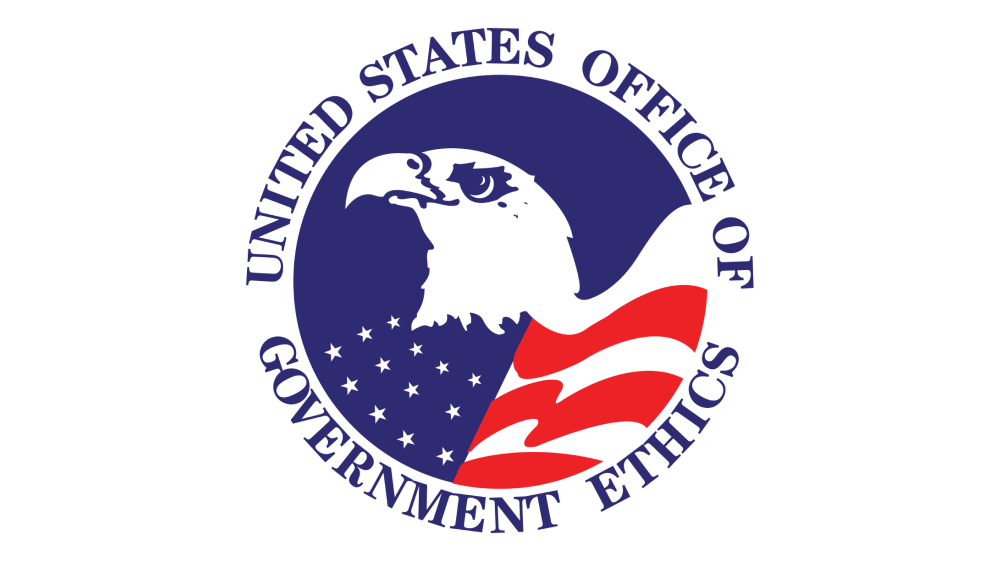
USOGE
The public has until June 21 to comment on a proposed rule allowing federal employees to accept gifts of certain legal costs. The proposed rule would create new federal regulations governing a federal employee’s acceptance of payments for legal expenses […]
The public has until June 21 to comment on a proposed rule allowing federal employees to accept gifts of certain legal costs.
The proposed rule would create new federal regulations governing a federal employee’s acceptance of payments for legal expenses or pro bono legal services for matters arising in connection with the employee’s official position, the employee’s prior position on a campaign of a candidate for president or vice-president, or the employee’s prior position on a Presidential Transition Team.
The U.S. Office of Government Ethics (OGE) wants to make related amendments governing the solicitation and acceptance of gifts from outside sources and establish limits of the amount of the value of the donations.
They are proposing a contribution limit of $10,000 per year from any single permissible donor to a legal expense fund. The fund would be required to be formed as a trust for employees to receive contributions and to make distributions of legal expense payments. Lobbyists would be prohibited from acting as trustees administering an employee’s legal expense fund.
Additionally, federal employees would be prohibited from accepting pro bono services from lobbyists, foreign governments or agents, or persons substantially affected by the performance or nonperformance of the employees’ duties.
According to the OGE, there are currently no statutory or regulatory frameworks in the executive branch for establishing a legal expense fund. The proposed rule was published on April 21 in the Federal Register.
November 4, 2020 •
Missouri Voters Pass Constitutional Amendment Including Lobbyist Gift Ban
Voters passed a constitutional amendment creating a lobbyist gift ban, reducing campaign contribution limits, and repealing redistricting. The measure amends Article III of the Constitution to prohibit all gifts from lobbyists or lobbyist principals to members of the General Assembly, […]
Voters passed a constitutional amendment creating a lobbyist gift ban, reducing campaign contribution limits, and repealing redistricting.
The measure amends Article III of the Constitution to prohibit all gifts from lobbyists or lobbyist principals to members of the General Assembly, staff members, and anyone employed by the General Assembly.
The amendment also reduces contribution limits made to or accepted by any candidate or committee for state senator from $2,500 to $2,400 per election.
There is no change for candidates for state representative.
The amendment also modifies the criteria for redrawing legislative districts and changes the process for redrawing state legislative district boundaries during redistricting.
The change happens by repealing the post of nonpartisan state demographer and giving all redistricting responsibility to a bipartisan commission, renaming them as the House Independent Bipartisan Citizens Commission and the Senate Independent Bipartisan Citizens Commission, respectively.
Additionally, the amendment increases membership on the commissions to 20 by adding four commissioners appointed by the Governor from nominations by the two major political party’s state committees.
As of Wednesday morning, with 98% of votes counted, these constitutional amendments had narrowly passed by 2% and are effective immediately.
January 28, 2020 •
Progress Michigan Seeking to Amend State Constitution to Ban Lobbyist Gifts, etc.
Progress Michigan is seeking to amend the state constitution to Ban lobbyists and their clients from giving gifts, including meals, drinks, and trips, to public officials Require lobbyists and public officials to make a public record of their phone calls, […]
Progress Michigan is seeking to amend the state constitution to
-
- Ban lobbyists and their clients from giving gifts, including meals, drinks, and trips, to public officials
- Require lobbyists and public officials to make a public record of their phone calls, meetings, and other communications with each other
- Require a two-year cooling off period before public officials could become lobbyists
- Ban contingency pay for lobbyists
Progress Michigan is part of the Coalition to Close Lansing Loopholes, which filed proposed language with the state for the November 2020 ballot.
A constitutional amendment requires the group to collect signatures of registered voters equal to at least 10% of the number of votes cast for all candidates in the last gubernatorial election, or at least 425,055 valid signatures by July 6.
The group is seeking a constitutional amendment, rather than a legislative initiative, which requires fewer signatures, to prevent the Legislature from amending the proposal.
The Iowa Legislature adjourned sine die April 27 after a 104 day session. In addition to legalizing sports betting and instituting limits on local government property taxes, Gov. Kim Reynolds signed a bill to modify disclosure requirements for gifts or […]

The Iowa Legislature adjourned sine die April 27 after a 104 day session.
In addition to legalizing sports betting and instituting limits on local government property taxes, Gov. Kim Reynolds signed a bill to modify disclosure requirements for gifts or bequests to the state.
House File 393 requires the governor and executive departments to file the gift report electronically with the Ethics and Campaign Disclosure Board if receiving a gift or bequest on behalf of the state of over $50.
The bill removes filing requirements with the General Assembly and for any gift less than $50.
February 20, 2019 •
Arkansas Ethics Commission Clarifies Gift Exception in Advisory Opinion
The Arkansas Ethics Commission clarified a gift exception in Advisory Opinion No. 2019-EC-001. A local lobbying firm wants to hold a 20th anniversary event and invite public officials. In turn, the firm requested more information regarding the exception permitting anything […]
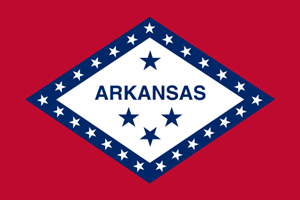 The Arkansas Ethics Commission clarified a gift exception in Advisory Opinion No. 2019-EC-001.
The Arkansas Ethics Commission clarified a gift exception in Advisory Opinion No. 2019-EC-001.
A local lobbying firm wants to hold a 20th anniversary event and invite public officials. In turn, the firm requested more information regarding the exception permitting anything to be given to public officials if it is also readily available to the general public.
The commission stated the exception does not apply to an event where invitations are issued to friends, family members, clients, former clients, and business associates only.
In order for an event to be readily available to the general public, the general public would have to be made aware of the event’s existence.
For the event to qualify for the gift exception, an entity could make an announcement of the event on widely-used social media platforms and through traditional media, such as a state-wide newspaper, to make sure the general public knows the event is not limited to invitees.
Additionally, holding an event at a venue open to the public, like a park or convention center, would help meet the gift exception.
January 22, 2019 •
Arizona Bill Regarding Lobbyist Gifts and Reporting Introduced
Rep. John Kavanagh introduced House Bill 2038 to the Arizona Legislature. The bill defines “hosted event” to include an event or function where one or more state officers or employees are invited and attend organized and paid for by a […]
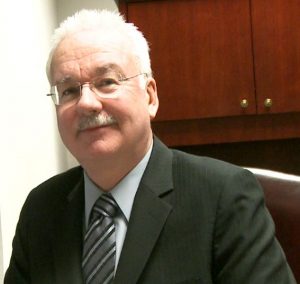 Rep. John Kavanagh introduced House Bill 2038 to the Arizona Legislature.
Rep. John Kavanagh introduced House Bill 2038 to the Arizona Legislature.
The bill defines “hosted event” to include an event or function where one or more state officers or employees are invited and attend organized and paid for by a principal.
Event or function includes a party, dinner, or luncheon, but does not include an athletic event or other entertainment.
A hosted event must be reported by the actual cost incurred for food, beverage, and other tangible benefits but do not include the overall sponsorship amount incurred by the principal or lobbyist.
Opponents to the bill say only reporting the food and beverage amount and not including the price of the ticket to the event is misleading.
November 19, 2018 •
FPPC Approves Cost of Living Adjustments for Gift Limits
On November 15, the California Fair Political Practices Commission approved proposed regulations to make biennial cost of living adjustments to campaign contribution and gift limits that will apply from January 1, 2019 through December 31, 2020. The proposed regulations would […]
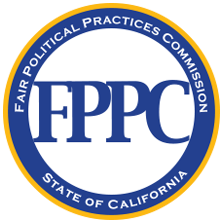 On November 15, the California Fair Political Practices Commission approved proposed regulations to make biennial cost of living adjustments to campaign contribution and gift limits that will apply from January 1, 2019 through December 31, 2020.
On November 15, the California Fair Political Practices Commission approved proposed regulations to make biennial cost of living adjustments to campaign contribution and gift limits that will apply from January 1, 2019 through December 31, 2020.
The proposed regulations would change the gift limit from $470 to $500 and make increases to campaign contribution limits for candidates.
Adjusted contribution limits for gubernatorial candidates would increase from $29,200 to $31,000.
July 30, 2018 •
Kansas City Defeats Gift Ordinance
An ethics proposal in Kansas City to limit gifts from lobbyists to $5, restrict taxpayer-funded City Council travel, and extend the revolving door provision was defeated on July 26. The proposal failed 7-4, even after a bill substitute increased the […]
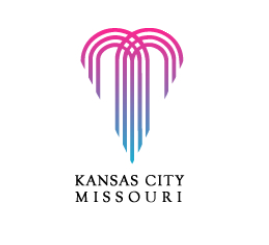 An ethics proposal in Kansas City to limit gifts from lobbyists to $5, restrict taxpayer-funded City Council travel, and extend the revolving door provision was defeated on July 26.
An ethics proposal in Kansas City to limit gifts from lobbyists to $5, restrict taxpayer-funded City Council travel, and extend the revolving door provision was defeated on July 26.
The proposal failed 7-4, even after a bill substitute increased the gift restriction to $50.
The ordinance was introduced by Councilman Scott Taylor, who is also a Kansas City mayoral candidate.
State and Federal Communications, Inc. provides research and consulting services for government relations professionals on lobbying laws, procurement lobbying laws, political contribution laws in the United States and Canada. Learn more by visiting stateandfed.com.


